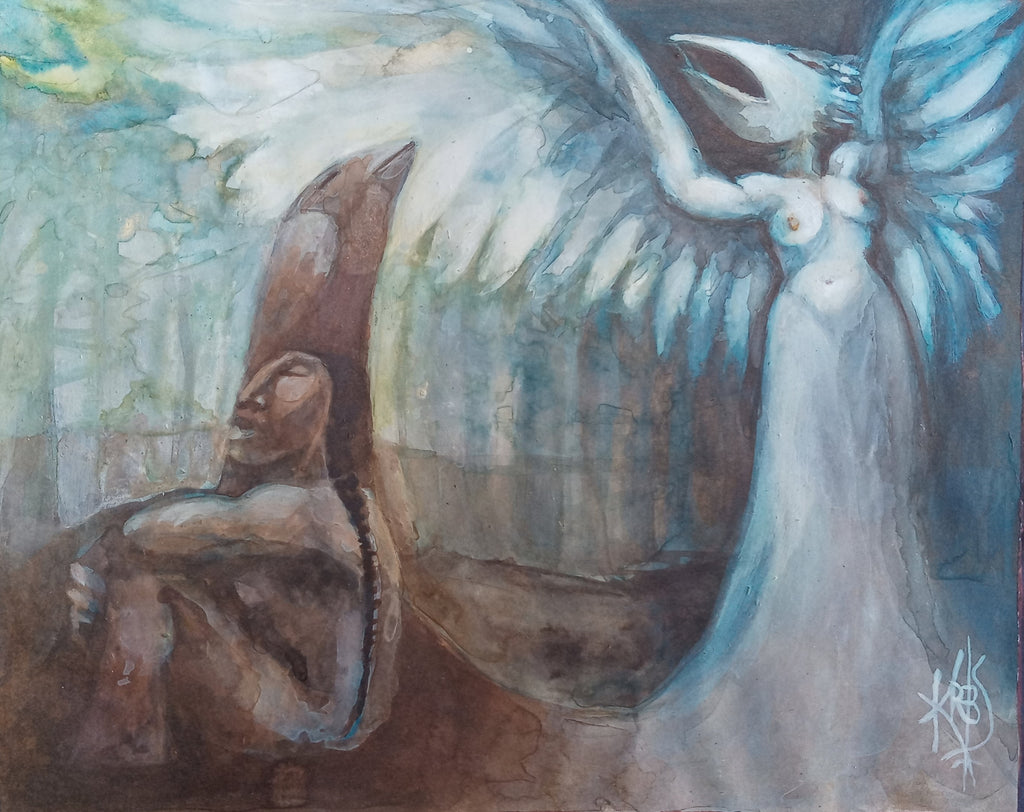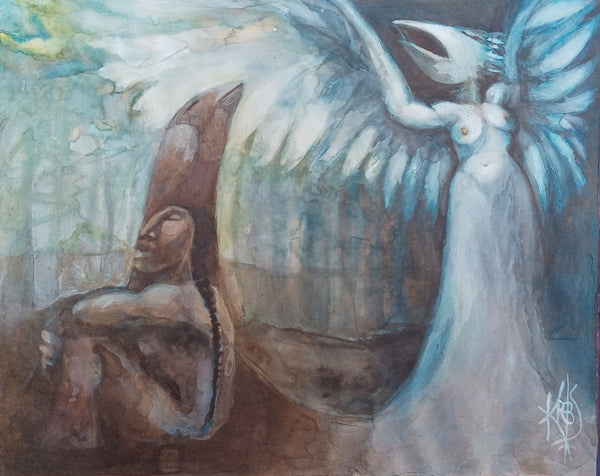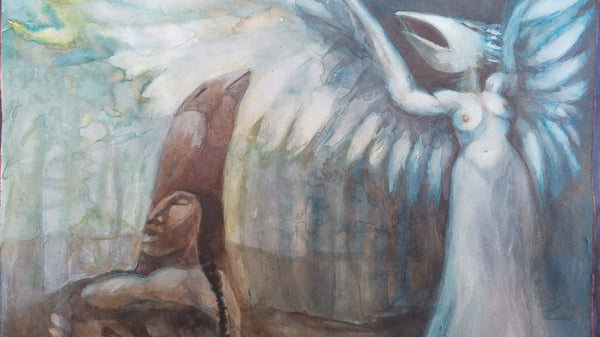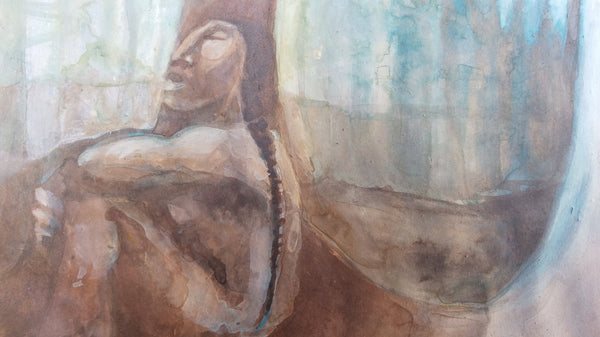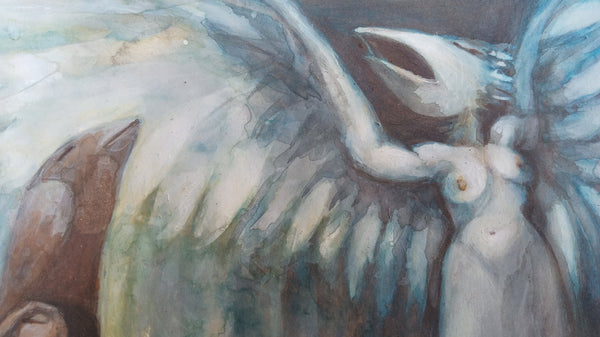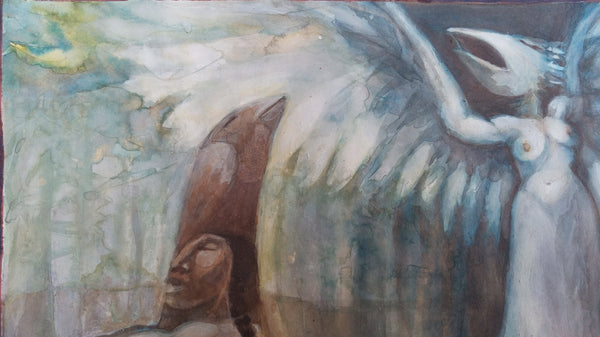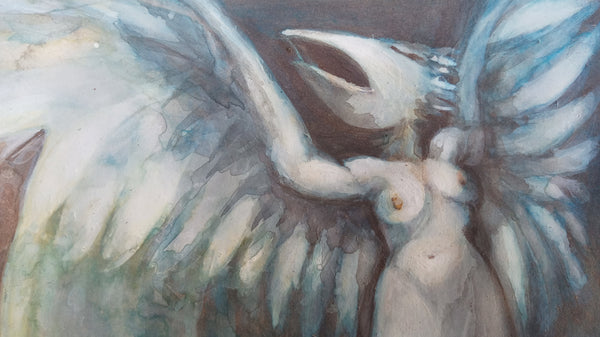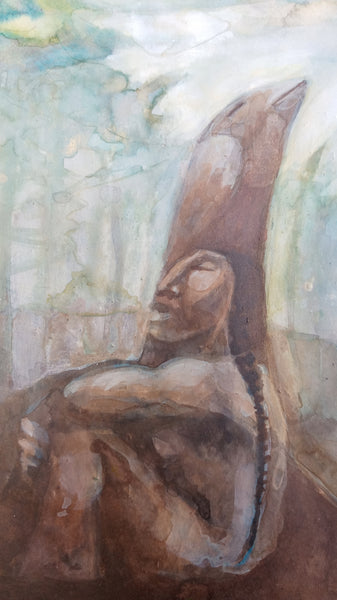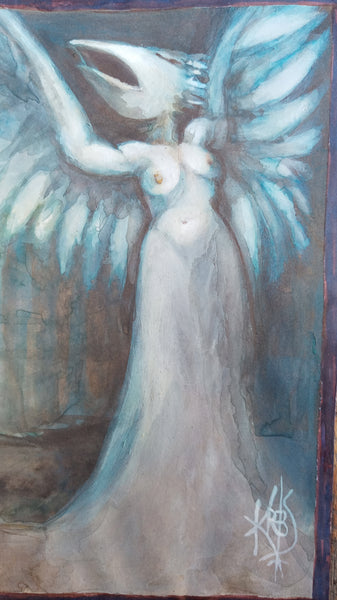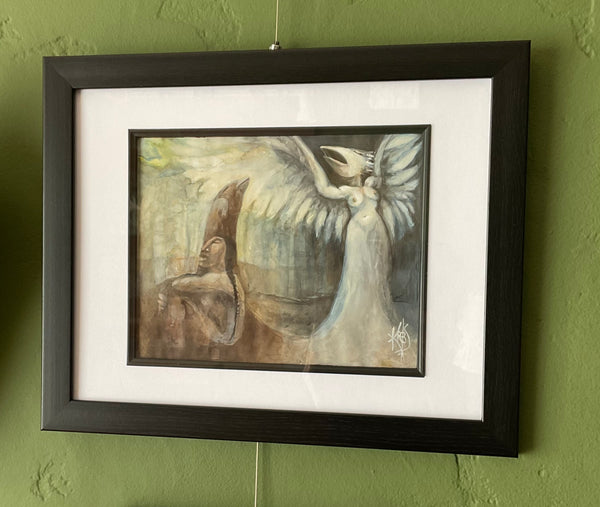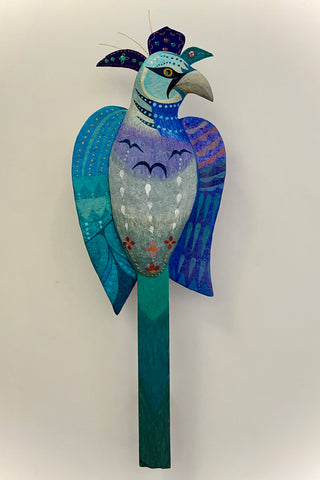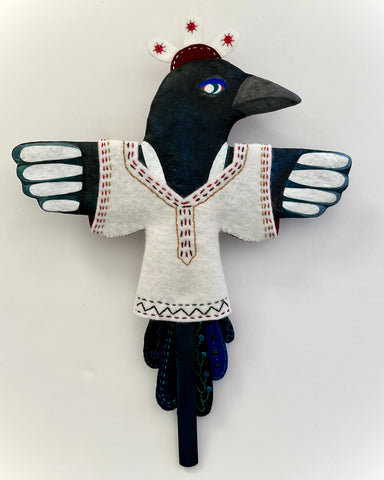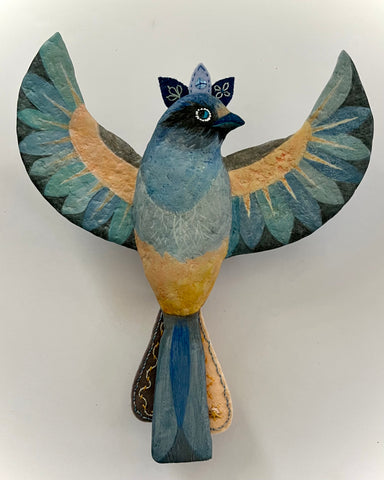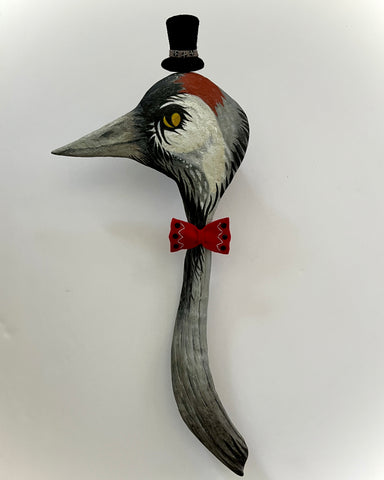Cactus Gallery LA
URUTAU by artist Patricia Krebs
Patricia Krebs, Argentina
Ink, watercolor and acrylic on heavyweight paper, 8 x 10" plus frame
The potoo (urutaú, which means "ghost bird" in Guaraní) is a strange bird native to the American jungle from Argentina to Nicaragua, whose sound has inspired several legends and popular songs because it sounds like a lament. One of the many versions of its origin tells about the daughter of a Guarani chief who had a love affair with a warrior from the Tupi tribe, their enemy. This love was forbidden and due to the lovers resistance to this prohibition, the princess was falsely notified of her lover's death. After this, she ran away and transformed herself into a bird who cries every night in sorrow for her lost love. Personally, I've found this bird fascinating since I discovered its existence. I'm intrigued by the fact that so many distant cultures throughout time and space have stories about forbidden love due to rivalry or class differences, and I'm saddened to realize that this tale from my native land is so much older than the famous "Romeo and Juliet" and even so, I've only learned about it recently.
El urutaú ("pájaro fantasma" en guaraní) es un extraño pájaro de las selvas de las Américas desde Argentina hasta Nicaragua, cuyo canto ha inspirado diferentes leyendas y canciones populares, dado que suena como un lamento. Cuenta una de las tantas versiones que la hija de un cacique guaraní tenía amores con un guerrero tupí, que era la tribu enemiga. Este amor fue prohibido y dado que los amantes se resistían a esta prohibición, le notificaron a la princesa que su amor había muerto. Luego de esto, huyó y se transformó en un pájaro que todas las noches lamenta la muerte de su amado. En lo personal me fascina este pájaro desde que supe de su existencia. Me intriga que culturas tan distantes en el espacio y el tiempo tengan estas historias de amores prohibidos por enfrentamientos o diferencia de clases, y me entristece darme cuenta de que este cuento nativo de nuestro continente es tanto más antiguo que “Romeo y Julieta” y, sin embargo, lo he conocido recientemente.

